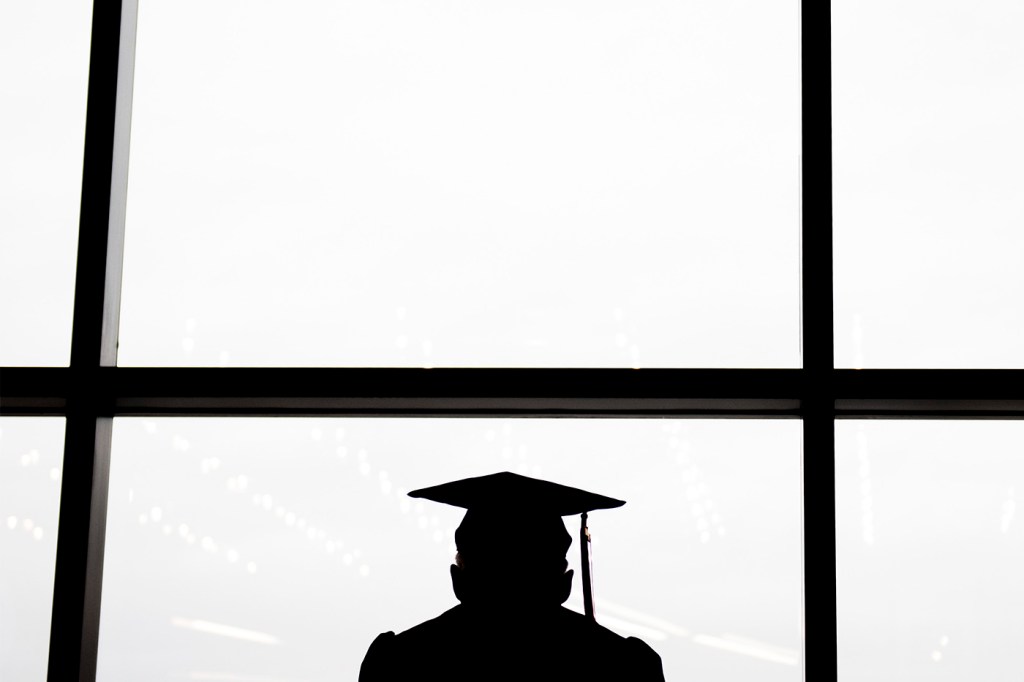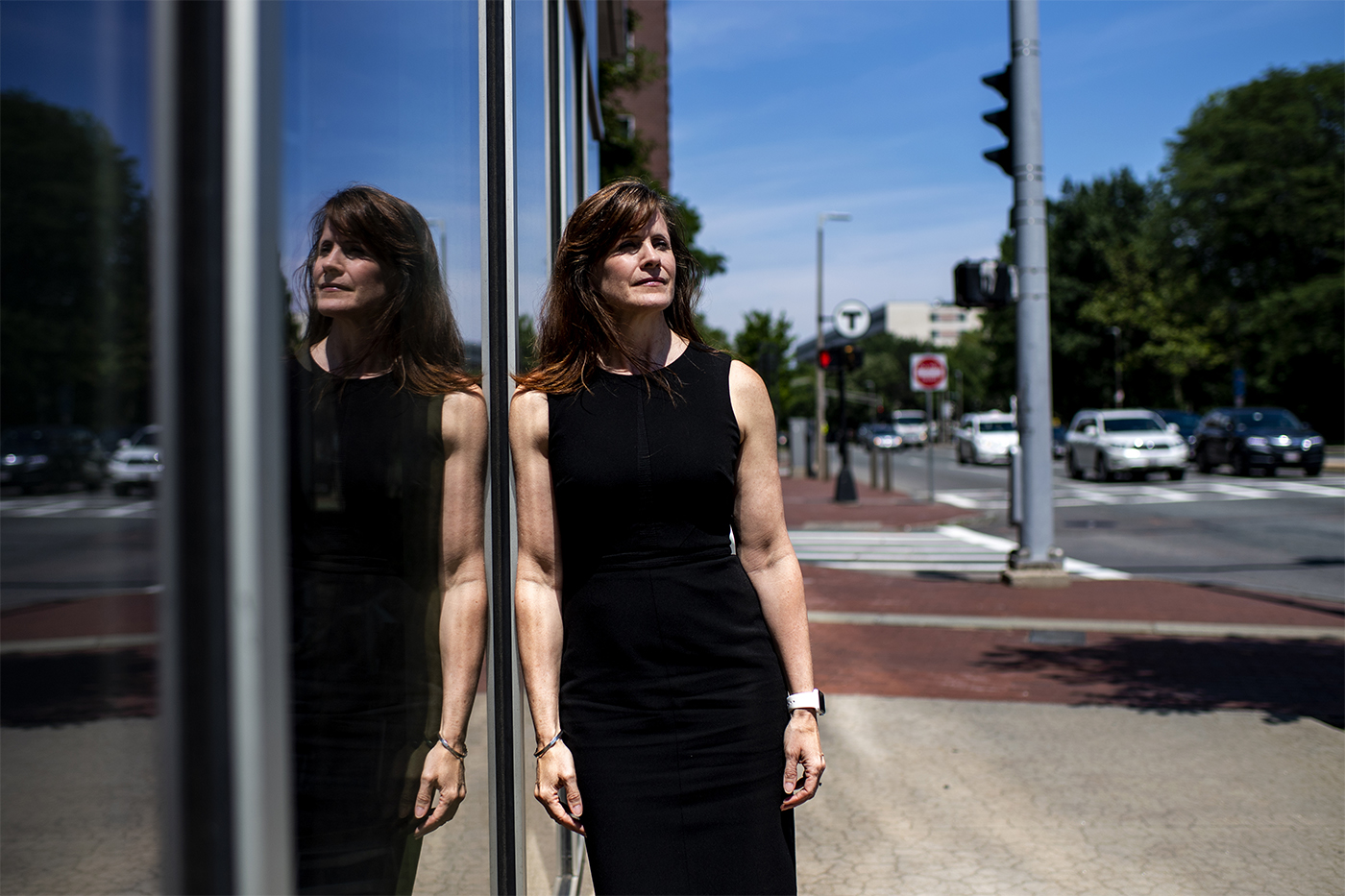Why people are less likely to enroll in college when the economy is doing well

Fewer people are going to college, and some believe that’s a good thing. In particular, economists say it’s a sign of a booming economy. When the economy is doing well and jobs are abundant, people are less interested in attending a traditional four-year college. By the same token, when the economy is faltering, college enrollment rates tend to rise, as people seek any opportunity to learn new skills and gain employment.

“When the labor market’s very slack and there are lots of available workers, suddenly employers want a college degree, or they want five years of experience, or they want the candidate that walks on water to walk through the door,” says Alicia Sasser Modestino, an associate professor of public policy and urban affairs and economics at Northeastern. Photo by Ruby Wallau/Northeastern University
The U.S. is in its longest-ever economic expansion—having marked 10 years of uninterrupted growth in June—and the unemployment rate has dropped to historic lows amid the longest streak of job creation on record.
That could help explain a new survey conducted by Northeastern University and Gallup that shows mixed sentiments in the U.S., the U.K., and Canada about the value of a college degree. While the majority of Canadians continue to believe in the value of a degree, their optimism isn’t shared in the U.K., where 41 percent of respondents expect a college degree to diminish in importance over the next decade. Thirty-six percent of Americans agree with their U.K. counterparts.
Alicia Sasser Modestino, an associate professor at Northeastern who has studied the relationship between employer demands and the labor market, says that counter-cyclical trends in college enrollment, and especially graduate school enrollment, are par for the course.
“When the labor market’s very slack and there are lots of available workers, suddenly employers (who didn’t want a college degree in the past) want a college degree, or they want five years of experience, or they want the candidate that walks on water to walk through the door,” she says. “Whereas, when the labor market starts to tighten, you actually see employers removing those college degree requirements, removing the number of years of experience, and we can actually see that in our data for the same job at the same employer.”
Modestino, who teaches public policy and urban affairs and economics at Northeastern, traces the beginning of the boom to the implementation of federal programs such as the Troubled Asset Relief Program legislation, which bailed out failing banks. Since then, sectors such as health care, education, and professional and scientific services have enjoyed the greatest expansions, she says.
Manufacturing, which has become increasingly sophisticated and high-skilled, has also seen some growth amid efforts by the Trump administration to encourage manufacturers to bring jobs back to the U.S., she says.
Employment rates have also rebounded to levels not seen since the Great Recession for lower skilled workers, according to Modestino. Workers with just a high school degree are seeing higher wages and more job opportunities.
“For them, this is finally the moment when folks who have been left out of this economic boom and a lot of prosperity are finally able to get at least some part of the pie,” she says.
But this demographic is also vulnerable to the next economic downturn. Another recession could hit them the hardest, Modestino says.
And, Modestino worries about how long the current U.S. economic expansion will continue. She warns that the trade war with China casts a dark cloud over the economy.
President Donald Trump has used tariffs as a tool to negotiate better trade terms with China, imposing them on goods such as apparel and electronics. The trade war has caused anxiety for consumers and uncertainty for American retailers that operate supply chains out of China.
“There’s no doubt that the trade war scrubs off economic growth, period,” Modestino says. “It’s a losing strategy. Neither side wins. We would all be better off if we did not impose these tariffs on each other because we’re just unnecessarily inflating prices.”
In the short term, this means that consumers are paying higher prices for Chinese goods, but it’s the long-term impacts that concern Modestino more. She says the trade war could damage the relationships that American manufacturers have developed with Chinese suppliers.
While she couldn’t predict how long the current U.S. economic expansion will last, Modestino says that economists are concerned about growth slowing down because of the uncertainty posed by the trade war.
For media inquiries, please contact Marirose Sartoretto at m.sartoretto@northeastern.edu or 617-373-5718.





